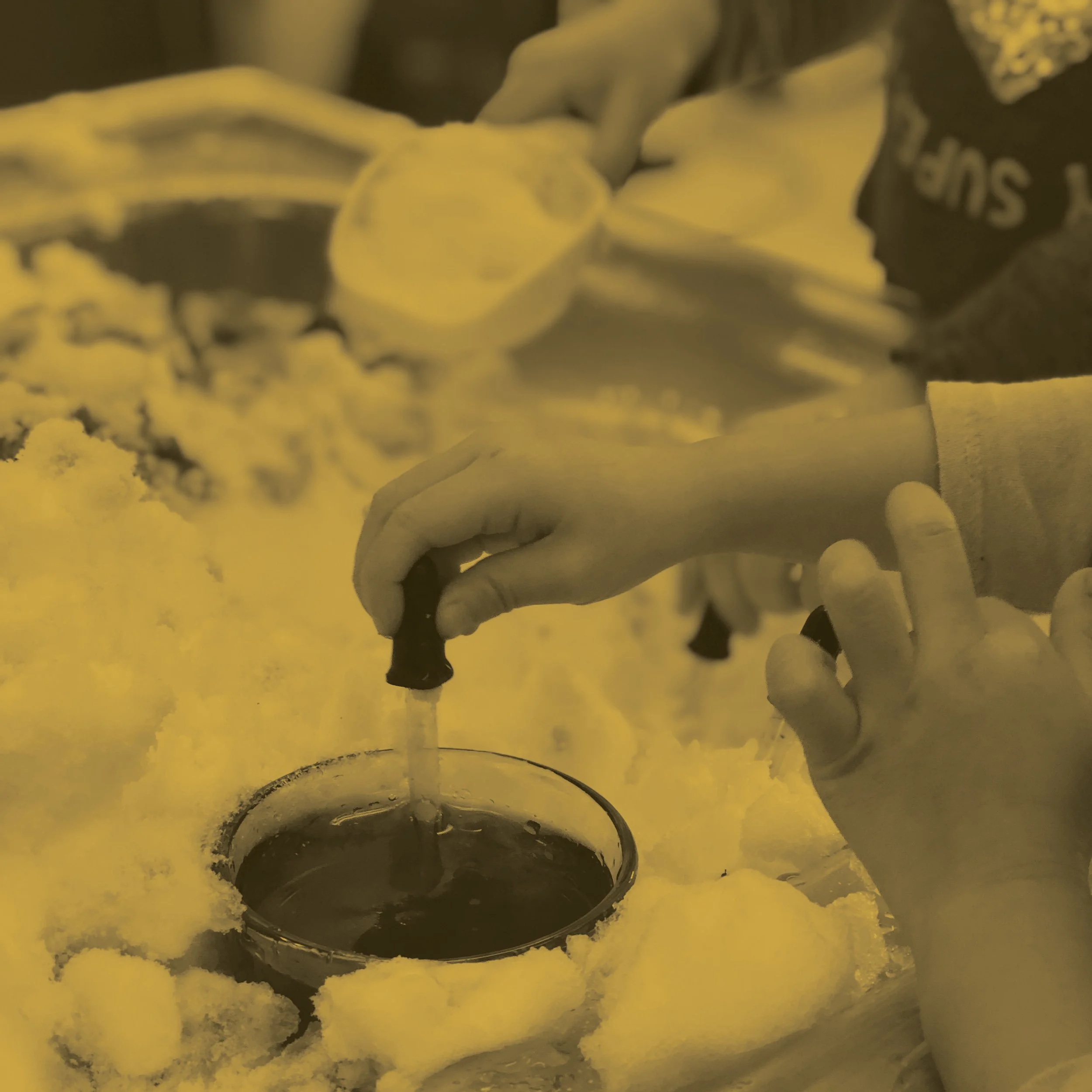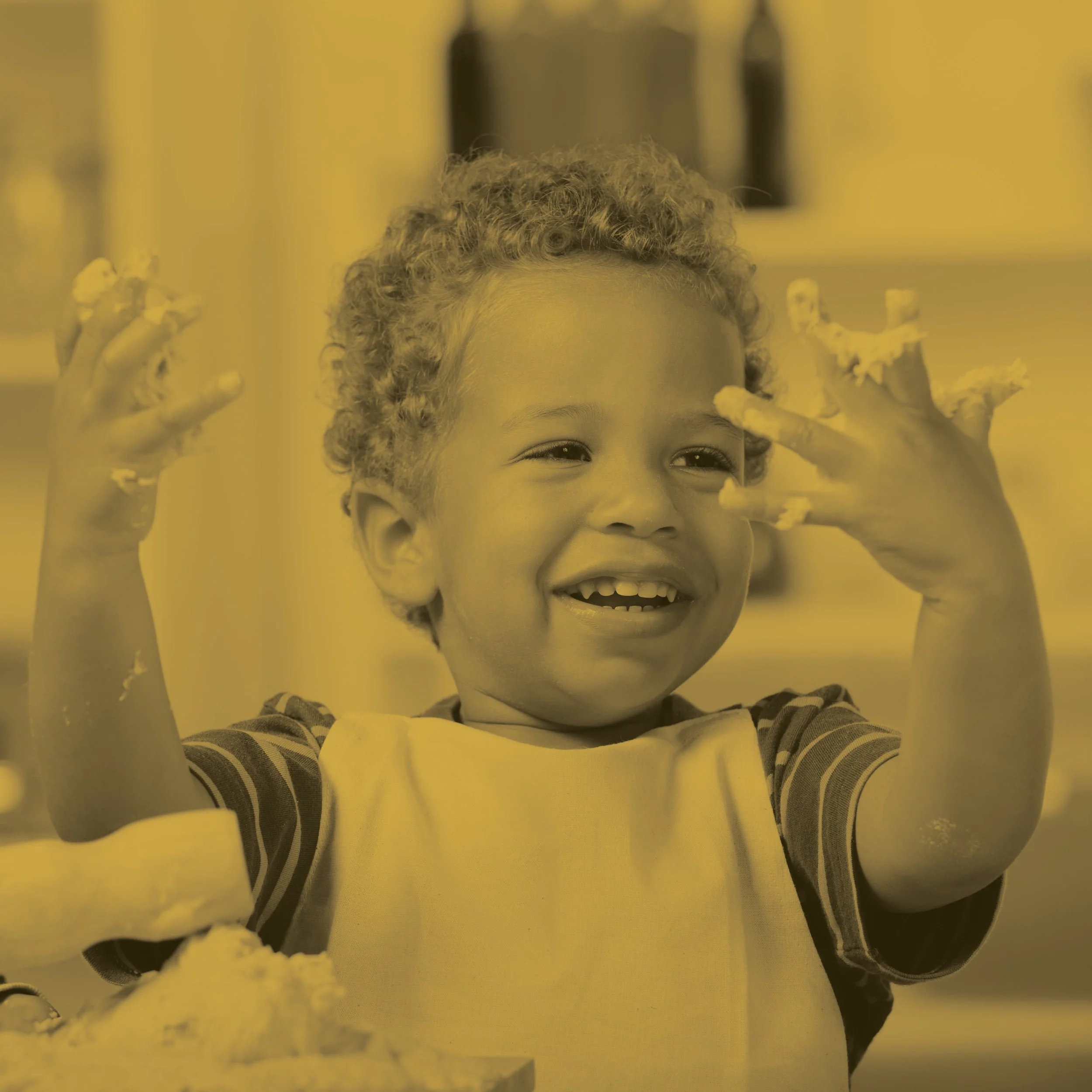
Our Curricular Approach
Grounded in the progressive educational tradition, our curriculum is built on children’s interests and nurtured through a climate
of collaboration, listening, and inquiry. We align ourselves with early childhood reconceptualists, as well as the most recent research, that tells us that direct instruction of isolated academic skills is not meaningful or beneficial to preschoolers.
It is our job, as skillful early childhood teachers, to facilitate literacy, numeracy, science, social studies, and the arts
holistically and within events that emerge organically from children’s play.
Curriculum is Emergent. Instead of doing the same projects and crafts, season after season, year after year, we engage in daily cycles of attuning to children’s interests, inquiries, and intra-actions in order to plan and facilitate a meaningful curriculum. Being grounded in the ideas, questions, and relationships of the unique children in our class affords us the freedom to be responsive to each child and to our school community. Important people and events can become curricular engagements. Our mail carrier, the construction on the street, the storm that knocked down branches in the backyard, the birds at the neighbor’s feeder — any of these might become main characters in our play or topics of our conversations and wonderings. These provide a rich context for teachers to facilitate children’s learning and development. Allowing curriculum to change and grow alongside the children ensures they receive an educational experience that is specific to who they are, developmentally stimulating, and culturally meaningful.
Play activates Learning. Learning is an active process of children coming to know themselves, others, and the world around them. Play is the vehicle through which young children best activate those physical, social, cognitive, and linguistic capacities. Playing together provides opportunities to nurture the skills and dispositions that benefits our youngest learners, such as noticing, hypothesizing, questioning, listening, communicating, cooperating, and collaborating. But what is play, exactly?
There are many definitions, however, we always return to Grey’s (2013) because it focuses on play as an activity that emerges from children themselves. Adult-directed activities can be enjoyable — but they aren’t play. Play must be: voluntary, open-ended, actively engaging, enjoyable, nonliteral, and have its rules and structure decided by the players themselves. Through a variety of roles, teachers at Watershed support children’s active and quiet play, indoors and out, for long stretches of time, every day.
Demonstrating critical thinking and social responsibility are prioritized over “academic” knowledge, rote memorization, or discrete skill-based objectives. However, our rich daily schedule, inspiring play spaces and varied materials provide opportunities for our experienced teachers to address all areas of the Ohio Early Learning and Development Standards throughout the school year.
In order to support this kind of flexible curriculum, teachers at WCS engage in regular cycles of noticing, documenting, revisiting, planning, and acting. This Curriculum Cycle guides teachers in making teaching decisions based on the inquiries, interests, and intra-actions of the children. In doing so, the teacher is intentional about how to best support children’s learning each day. The daily noticing and documentation that occurs within the curriculum cycle provides the basis for ongoing assessment of children’s learning over time. The teachers at WCS compile descriptive learning profiles for each child that communicate who children are as learners (Dispositions), how children learn (Pathways), and what they’re learning (Domains).


